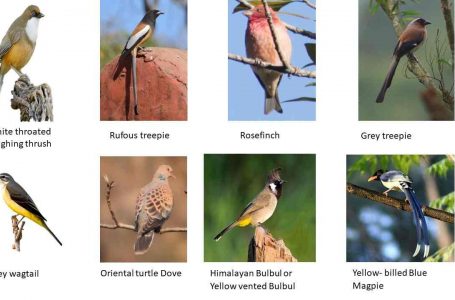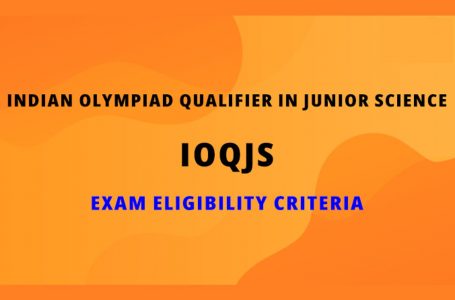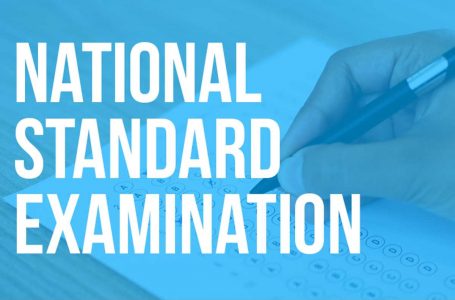Common Law Admission Test Exam
There was a time when pursuing law in India was considered the last resort. But with the rising number of cases and the dearth of finding good legal representation, law has become one of the most premier education courses in the country. The black coat, like the white coat for doctors, sends a sense of pride and passion in today’s youngsters. And with the need for good legal advice and representation, the profession is now rooting forward, with thousands of students pursuing law every year. With the advent of CLAT i.e. the Common Law Admission Test there has been a considerate growth in the field of Law in India, particularly because only the best with potential for the field are undertaken in various law programs throughout the country. CLAT is a centralized test for seeking admission in the protuberant National Law Universities in India. The test can be applied for after Higher Secondary or 12th examination for admission in various undergraduate programs in Law or after Graduation in Law to pursue a postgraduate Law course offered by these National Law Universities. The National Law School of India University, Bangalore (NLSIU), first conducted this test on 11th May 2008 with 1037 seats to be filled in the seven law schools across the country. Seven more law schools have been added to this list.
Examination Pattern
1. For Undergraduate Courses:
Examination comprises 200 multiple choice questions required to be answered in a period of 120 minutes. Questions are further divided into-
- English including Comprehension 40 Marks
- General Knowledge/ Current Affairs 50 Marks
- Elementary Mathematics 20 Marks
- Legal Aptitude 50 Marks
- Logical Reasoning 40 Marks
Ideally, English and GK should not take more than 20 minutes, while Mathematics questions must be solved in a time span of 12-15 minutes. Rest of the sections can be completed in 70 minutes. For legal aptitude, give at least 40 minutes. Remember, revision is the key.
2. For Postgraduate Courses:
For seeking admission in postgraduate courses, aspiring students shall attempt the 150 marks test required to be finished in 2 hours. The pattern is as follows:
- 100 Marks (4 questions of 25 marks each) Long Essay Type Descriptive Questions (Covering Constitutional Law and Jurisprudence)
- 50 Marks (50 questions of 1 mark each) Multiple-Choice Questions (Covering all compulsory law subjects prescribed by the BCI for the Under-Graduate Course except Constitutional Law and Jurisprudence)
In case of a tiebreaker the one having scored higher marks in the Long Essay Type Descriptive Questions Section would be selected.
Admission Criteria
1. For Undergraduate Courses:
The admission allocation to any of the NLU’s is based on merit-cum-preference. Each student is provided with a preference list for institutes s/he seeks for admission. Finally on the basis of the rank obtained in the CLAT test, colleges are allocated in accordance to preferences of the students. Initial allotment list comes with a list of waitlisted candidates with students (selected and waitlisted) asked to deposit a refundable security amount of Rs.50, 000/- with the CLAT office to ensure reservation of their seats in the allotted universities. In case of admission confirmation, fee shall be submitted in respective institution.
2. For Postgraduate Courses:
The process is similar to graduate courses but centralized and conducted from the CLAT Office at Hidayatullah National Law University, Raipur (Chhattisgarh).
Scoring and Negative Marking
On an average, a student seeking admission must secure a score of 150-155 by answering 85-90% correct answers of 160-180 questions. For this, one needs to practice well and learn time management.
The scoring also includes negative marking i.e. wherein 0.25 marks are deducted for every wrong answer.
Eligibility Criteria
1. For Undergraduate Courses:
- Candidates must have passed higher secondary or an equivalent course from recognized board.
- Minimum requirement of 45% aggregate (40% for SC/ST)
- Should be below 20 years of age at time of applying for the exam (22 yr. for SC/ST)
- Candidates awaiting their Higher Secondary results can also apply for the examination, but their admission would be guaranteed only after results.
2. For Postgraduate Courses:
- The candidate must have obtained a LL. B/B. L. Degree or an equivalent degree from a recognized University.
- At least 55% marks in aggregate (50% for SC/ST)
- Candidates awaiting their University results can also apply for the examination, but admission is guaranteed only after results.
- Candidates having passed with a compartment in any subject are allowed to appear for the examination under the condition that they will have to clear those subjects with 55/50% marks either at the time of their admission or within the timeline allocated by the university.
Important Dates
- Date for the Commencement of Sale of Application Forms – 15th January 2013 (Tuesday)
- Last Date for submission of filled-in Application Forms – 30th March 2013 (Saturday) by 5:00 p.m.
- Date of Common Law Admission Test (CLAT) – 2013 12th May 2013 (Sunday)
- Date of Declaration of Results – 31st May 2013 (Friday)
- Issue of First Provisional Allotment List along with Waiting List – 2nd June 2013 (Sunday)
> Issue of Revised First Provisional Allotment List – 11th June 2013 (Tuesday)
- Last Date for Fee-deposit with CLAT Office by the candidates of the First Provisional Allotment List and Waiting List to reserve their seats in respective Universities – 7th June 2013 (Friday) by 4:00 p.m.
> Last Date for Fee-deposit with CLAT Office by the Candidates of the Revised First Provisional Allotment List to reserve their seats – 14th June 2013 (Friday) by 4:00 p.m.
- Issue of Second Provisional Allotment List – 11th June 2013 (Tuesday)
> Issue of Second Provisional Allotment List -16th June 2013 (Sunday)
- Issue of Third Provisional Allotment List – 16th June 2013 (Sunday)
> Issue of Third Provisional Allotment List & Waiting List – 20th June 2013 (Thursday)
- Issue of Fourth Provisional Allotment List (if any) – 20th June 2013 (Thursday)
- Completion of admission formalities at University – 24 – 27th June 2013 (Monday – Thursday)
- Last Date for Withdrawal of Candidature for Admission from CLAT Office – 27th June 2013 (Thursday) by 4:00 p.m.
- Closure of Admission Process by CLAT Office – 29th June 2013 (Saturday)
Institutions
The list of participating National Law Universities in order of their establishments is as follows:
- National Law School of India University, Bangalore (NLSIU)
- National Academy of Legal Study & Research (NALSAR) University of Law, Hyderabad
- National Law Institute University, Bhopal (NLIU)
- The West Bengal National University of Juridical Sciences, Kolkata (WBNUJS)
- National Law University, Jodhpur (NLUJ)
- Hidayatullah National Law University, Raipur (HNLU)
- Gujarat National Law University, Gandhinagar (GNLU)
- Dr. Ram Manohar Lohiya National Law University, Lucknow (RMLNLU)
- Rajiv Gandhi National University of Law, Punjab (RGNUL)
- Chanakya National Law University, Patna (CNLU)
- National University of Advanced Legal Studies, Kochi (NUALS)
- National Law University, Odisha (NLUO)
- National University of Study 6 Research in Law, Ranchi (NUSRL)
- National Law University & Judicial Academy, Assam (NLUJA)
Career
Career options for law students are ample- including practicing in courts or working for business houses, law firms and consultancies. Since CLAT undertakes only the best, hence the demand for students who have been selected through CLAT has risen in the past few years. Apart from regular careers, law students can opt for careers like Corporate Counselors, Civil/Judicial Services, NGO’s, Academics, Journalism and Entrepreneurship. Law as a field of study has reoriented itself with making lawyers more objects oriented, vibrant, confident, aware and competitive.
Syllabus
1. For Undergraduate Courses:
- English Including Comprehension: With the help of comprehension passages and grammar sections, the candidate’s command on English will be judged. The grammar section will consist of basic grammar based questions such as filling the blanks, correction of incorrect etc.
- General Knowledge and Currents Affairs: Question of current affairs and static general knowledge will judge general awareness of the candidate.
- Mathematics: The section is based on elementary mathematics till class 10th level.
- Legal Aptitude: This section is completely based on the candidate’s way of approaching and dealing with a situation. It comprises several legal principles and a set of related facts, using which the candidate has to derive the most reasonable conclusion. It judges the interest of the candidate towards research, study of law and problem solving ability.
- Logical Reasoning: This section comprises logical reasoning questions, syllogisms, logical sequences, analogies, etc. determining the ability of the candidate to identify logical links, patterns and rectify arguments.
2. For Postgraduate Courses:
- Long Essay Type Descriptive Questions based on Constitutional Law and Jurisprudence, to determine the theoretical knowledge of the candidate and their ability to use them accordingly.
- Multiple-Choice Questions covering all compulsory law subjects prescribed by the BCI for the Under-Graduate Course except Constitutional Law and Jurisprudence to know whether the student has studied the subjects thoroughly and has complete command over them.
There isn’t denying about the fact that CLAT aims at judging legal caliber of the students along with their ingenuity in treating difficult Situations. The test is one of the most difficult exams in the country. As per the directives from the Ministry of Human Resources Development, (Government of India) and the University Grants Commission of India, CLAT exam is conducted every year in the month of May by each of the law colleges.
Advertisement
As per the advertisement published on 1st January 2013 (Tuesday), the candidates fulfilling the mentioned eligibility criteria for common law admission test can apply online from 15th January 2013. According to the advertisement the last date for filling of the online application form was till 30th March 2013.
Admit Card
The Admit Card / Hall Ticket can be easily downloaded by visiting the official page of the CLAT exam i.e. www.clat.ac.in, where you just need to enter your registration number along with your date of birth and the CLAT Hall Ticket is generated for download.
Result
The results of the 2013 CAT exams will be announced on 31st May 13, 2013 (Friday). Following this the candidates will be able to download their scorecards from the CLAT’s official website. This scorecard is an important document required at the time of counseling and admission at the various IIMs.
There isn’t denying the fact that CLAT aims at judging the legal caliber of the students along with their ingenuity in treating difficult situations. The test is one of the most difficult exams in the country. As per the directives from the Ministry of Human Resources Development, (Government of India) and the University Grants Commission of India, CLAT exam is conducted every year in the month of May by each of the law colleges.





